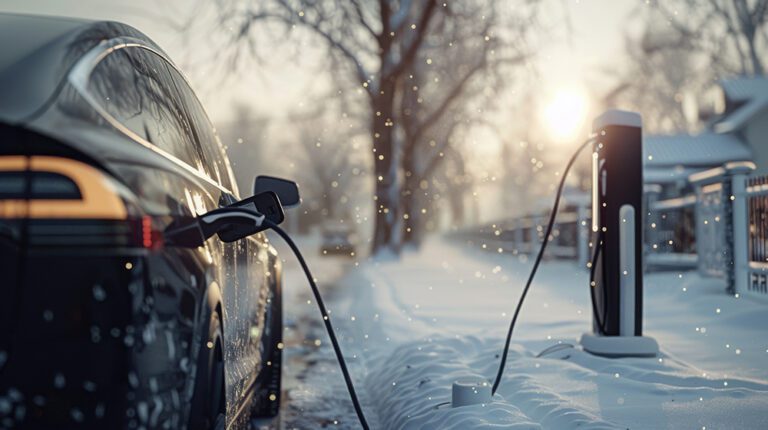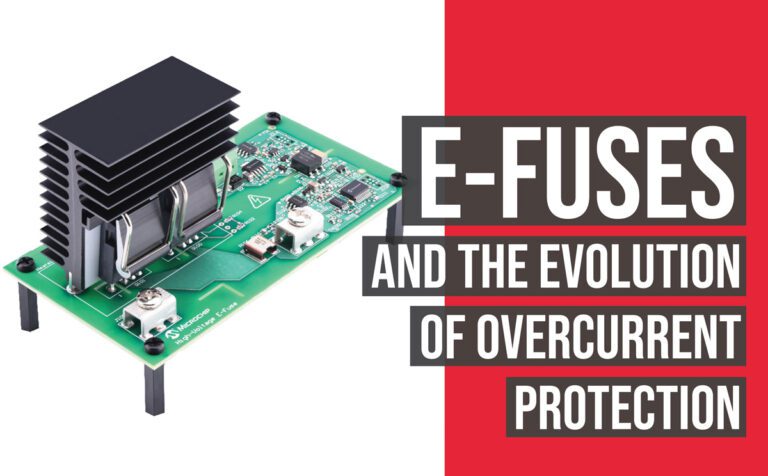Sponsored by Littelfuse. Ditch the plug! Make wireless EV charging a reality now! Unique components ensure safety, efficiency and reliability. Imagine an EV charging experience that’s as seamless and intuitive as parking your car—just “park, charge, and go.” For the end-user, the appeal is clear: EV owners envision pulling into their garage, a designated parking… Read more »
Search Results Found For: "Lightning "
Ford gives all EV buyers a free charging station and installation—it seems to sell more cars
The “Ford Power Promise” focuses on drivers who can most easily charge at home—still the low-hanging fruit for EV sales. It’s working. Selling electric vehicles was always going to be a challenge, especially for established U.S. brands like Ford and Chevrolet. They require a lot of explanation by salespeople unfamiliar with EVs; not every shopper… Read more »
Ford distributes 140,000 free NACS EV charging adapters
Tesla announced plans to open up its Supercharger network to drivers of other brands’ EVs some years ago, but making this a reality remains a work in progress. EVs equipped with a CCS connector need an adapter to work with Tesla’s NACS (also known as SAE J3400) connector, and the Supercharger network’s software must be… Read more »
CAA tested 14 EVs in the frigid Canadian winter. Here’s what their experts discovered.
The Canadian Automobile Association, inspired by the Norwegian El Prix winter EV range test series, recently tested 14 EVs under typical winter conditions in the Great White North. The 14 EVs were driven from Ottawa to Mont Tremblant in sub-zero temperatures varying from -7° C (19.4° F) to -15° C (5° F). Out of the… Read more »
TELO to offer its compact electric pickup truck to commercial fleets
Where are the electric pickup trucks? The Cybertruck isn’t really a pickup in the usual sense of the term, and Ford’s F-150 Lightning has been getting great reviews but disappointing sales. TELO Trucks is addressing an unserved segment—the company makes a compact electric pickup truck, and with its new TELO Trucks Commercial Fleet Sales initiative,… Read more »
Centennial College adds mandatory EV and hybrid coursework to its 2-year auto tech program
Centennial College’s School of Transportation, which claims to be Canada’s largest on-site transportation training facility, will require students entering the Automotive-Motive Power Technician program to complete EV and hybrid vehicle training, as of the fall 2024 semester. The Motive Power Technician two-year degree program covers a variety of topics necessary for students seeking a career… Read more »
Electronic fuses and the evolution of overcurrent protection
An old saw often uttered by an electrical engineer (or their hapless techs) when an electronic device releases its magic smoke goes something like this: “The transistor bravely sacrificed itself to protect the fuse.” This is a succinct way of saying that conventional fuses (and most types of circuit breakers) shouldn’t be counted on to… Read more »
How HummingbirdEV uses modular platforms and micro-factories to lower the cost of commercial EVs
Q&A with HummingbirdEV CEO Rakesh Koneru. The commercial EV market is hot—a bit too hot for some. Over the past decade, we’ve seen dozens of startups come and go. Many of these built promising vehicles, but starved out while waiting for customers to place volume orders. California-based HummingbirdEV, which was founded in 2015, is taking… Read more »
How to protect an EV’s on-board charger from transient grid surges
Sponsored by TTI. The automotive environment is one of the most severe environments for electronics. Today’s vehicle designs proliferate with sensitive electronics, including electronic controls, infotainment, sensing, battery packs, battery management, electric vehicle powertrains, and on-board chargers. In addition to the heat, voltage transients, and electromagnetic interference (EMI) in the automotive environment, the on-board charger… Read more »
Ford plans new electric pickup and SUV, starting around $25k
The higher purchase prices of EVs now represent the number-one obstacle to mass adoption. Automakers have figured this out (some a bit later than others), and are adjusting their strategies to bring more low-priced EVs to market. In February, Ford CEO Jim Farley announced that his company has been quietly working on a low-cost platform… Read more »

















